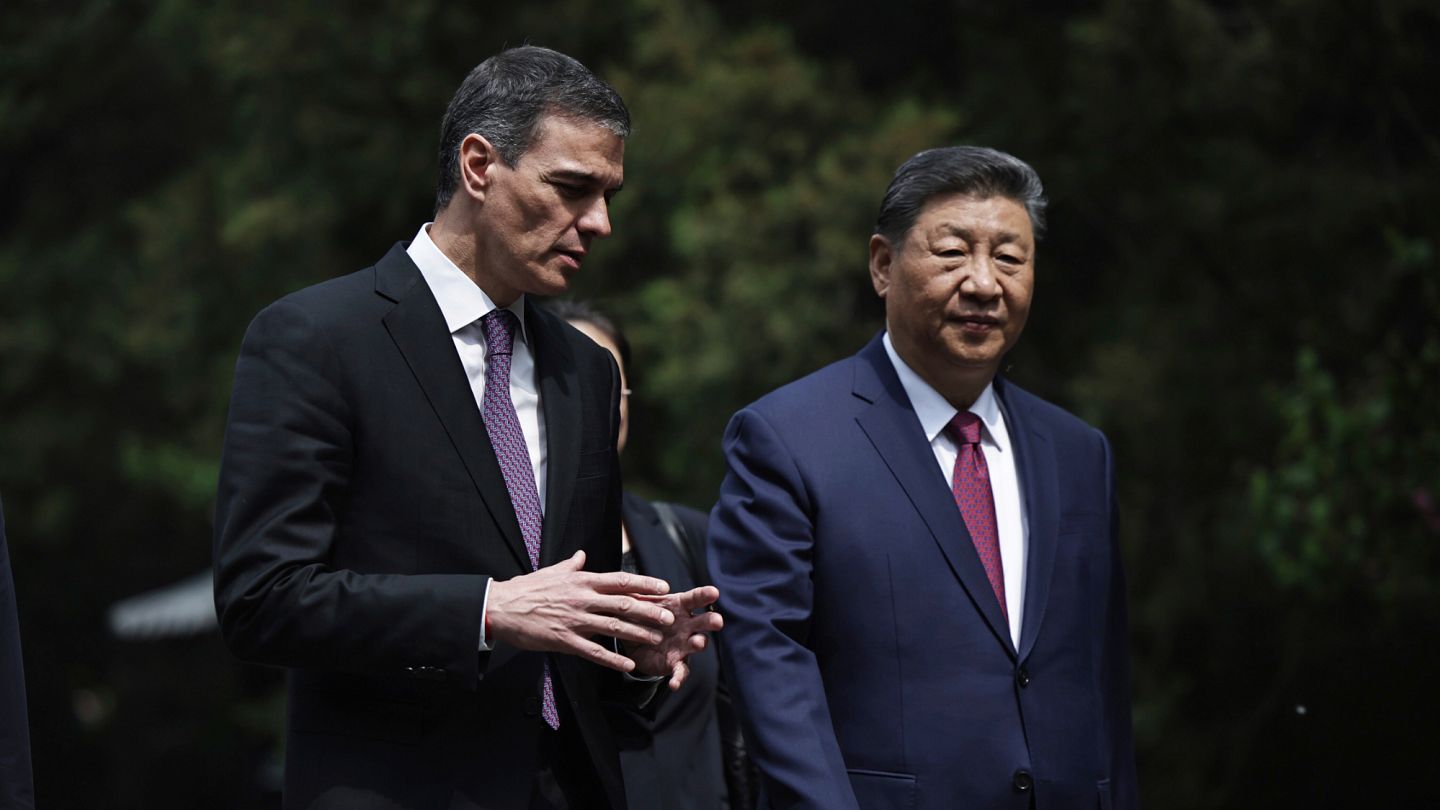Chinese leader Xi called for "fair global governance" during his meeting with the Prime Minister of Spain.
Spanish Prime Minister Sanchez is visiting China for the third time in two years. The aim of his socialist government is to attract more investment from the Asian giant.
Chinese President Xi Jinping, while trying to win allies amid escalating tariff tensions with the U.S., called on Western countries to support multilateralism and open cooperation. Xi delivered this message during his meeting with Spanish Prime Minister Pedro Sanchez in Beijing, stating, "Both sides should continue to build a fair and reasonable global governance system, safeguard world peace and security, and promote common development and prosperity." This visit coincides with a complex period between Europe and China. The tariffs announced last week by U.S. President Donald Trump, which were later suspended, could push the European Union to engage in more trade with China, the world's third-largest consumer market. Without mentioning Trump's name or directly referencing the 145% tariff imposed on Chinese goods, Xi emphasized that the "multiple risks and challenges" facing the world can only be overcome through "unity and cooperation."
Sanchez is also expected to meet with executives from Chinese companies producing electric batteries and renewable energy technologies. Speaking after his meeting with Xi, Sanchez said, "We are in favor of more balanced relations between the European Union and China, finding solutions to our existing differences through negotiation, and increasing cooperation in areas of common interest." He added, "Trade wars are not good; no one wins. And this is very clear. The world needs both China and the U.S. to engage in dialogue."
Warnings from Washington
However, before Sanchez's visit to China, there were criticisms from Washington regarding his Asia tour, which also includes Vietnam. U.S. Treasury Secretary Scott Bessent issued a stern warning to Spain for its attempts to get closer to China. Bessent stated, "Any country trying to get close to China is stabbing itself in the back. Because Chinese manufacturers will try to dump goods in those countries that they cannot sell in the U.S."
Spain's Agriculture Minister Luis Planas responded to this criticism during his remarks in Vietnam, saying, "Developing our trade relations with an important partner like China is not an attitude against anyone. Every country must defend its own interests."
Madrid's Orientation Toward China
Spain, the fourth-largest economy in the Eurozone and a leader in growth, has adopted a less confrontational stance toward China compared to some other EU countries in recent years. Last year, Spain initially supported the EU's proposed tariffs against Chinese-made electric vehicles due to concerns over unfair competition but remained abstained in the final vote. Planas argued that Madrid's approach toward Beijing has contributed to the search for a way out of this crisis by some countries within the EU.
Although Chinese investments in Spain have increased, the country's trade with China is not as intensive as that of Germany and Italy. However, Spain accounts for 20% of China's pork imports. Daniel de Miguel, vice president of the Spanish pork producers' association Interporc, stated, "For us, China is the most important market." Last year, Spain generated 56% of its electricity from renewable sources and needs China's critical raw materials, solar panels, and green technologies. In December, Chinese electric battery company CATL announced a partnership with automotive giant Stellantis to establish a €4.1 billion battery factory in northern Spain. This development was followed by agreements made last year by Chinese companies Envision and Hygreen Energy to establish green hydrogen infrastructure.


